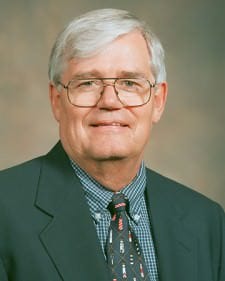by Dr. L. John Van Til


Grove City, PA -(AmmoLand.com)- Over the weekend a reporter on Fox News said something that struck my attention: “There is a move to have the Republican Convention Rules Committee enact a measure that would prevent bound delegates from abstaining from votes on the first ballot, based on their conscience.”
This reference to conscience got my attention because I have studied the subject for decades, having also written a history of liberty of conscience.
Wanting to make sure that the reporter had her facts straight, I tracked down the source for the reporter’s brief remarks. It turns out that Virginia has a statute that requires delegates to the national political conventions to vote for the winners of the primaries. This year for the Republicans that would be Donald Trump.
Beau Correll, a Republican delegate and Cruz supporter from Virginia, filed a suit Friday, June 24 in federal court claiming that this statute requiring him to vote for Trump violated his rights of conscience under the religion clause of the First Amendment to the Constitution. Correll, in conscience, refuses to vote for Trump because he says, “Trump is not fit to be president of the United States.” Correll does not want to wait and see what happens at the convention because he fears Trump will sue him. Correll seeks an injunction which would prevent Trump from suing him under the state law. Trump likes to sue, Correll says. His lawyers wisely asked that the suit be expedited.
It would appear that this is not a difficult case for any judge for two reasons. One, the supremacy clause of the Constitution (Article VI, clause 2) states that “the Constitution, and laws of the United States which shall be made in pursuance thereof … shall be the supreme law of the land.” It goes on to state that “judges in every state shall be bound by it.” While the supremacy clause really settles the issue, Correll’s case is strengthened by the fact that his claim of liberty of conscience to vote his convention ballot is a fundamental right under the religion clause. Fundamental rights, the court has said, “require special protection.” And, the Founders said that liberty of conscience is the heart of the religion clause. Indeed, liberty of conscience is so basic that the original 13 states, following colonial practices, included provisions for it in their constitutions. Moreover, all states to this day have a liberty of conscience clause.
In a few words, it seems certain that the court should conclude that the supremacy clause trumps the Virginia state statute, while the religion clause protects the delegate’s right to vote his conscience on any and all ballots at the convention. Pause for a moment and ponder this issue. Its resolution will likely have a profound effect on the Republican Convention voting on a candidate, let alone other states’ delegates, Democrat or Republican. This is especially important this year because, as we all know, the next president will make one or more appointments to the Supreme Court.
We add a note here on what the Republican Party has said about this issue. Normative remarks are found in “The Rules of the Republican Party,” adopted on August 27, 2012, in a convention in Tampa, Florida. Two rules are on point. Rule 15b, “Participation in the Delegate Selection Process,” states among other things, “Participation shall in no way be abridged for reasons of … religion.” The only meaning of this clause in the rules is that one’s rights of conscience prevail in voting.
Turning to Rule 16a, 1: “Election, Selection, Allocation, or binding Delegates and Alternates” says that the “secretary of the convention shall record each vote in accordance with the delegate’s obligation under these rules, state law, or state party rules.” Significantly, it further states that “support of any other person shall not be recognized.” The intent here is clear. Delegates are to be bound in their vote based on results at the state level.
An informed reading of these two clauses shows that Rule 16 is in conflict with the religion reference in Rule 15. This is not surprising since few people in government or politics pay serious attention to the religion clause of the First Amendment with its inherent protection of liberty of conscience.
Is the apparent conflict between Rule 15 and Rule 16 likely to precipitate a court challenge?
Will this cause a court challenge, just like the Correll case in Virginia? If all delegates are ultimately free to vote their conscience on all ballots, based on either or both of these matters, is it possible that large numbers of delegates could change their “bound vote” status and/or abstain from voting? What would the effect of this be on Donald Trump’s campaign? What would be the impact of many voting their conscience on the first ballot?
It will be interesting to see how the federal judge in the Virginia case rules. Mere chaos is already likely; and could that turn into unmanageable chaos in Cleveland?

About the Author:
Dr. L. John Van Til is a fellow for humanities, faith, and culture with The Center for Vision & Values at Grove City College. His latest books are “Thinking Cal Coolidge,” and “The Soul of Grove City College: A Personal View.”
